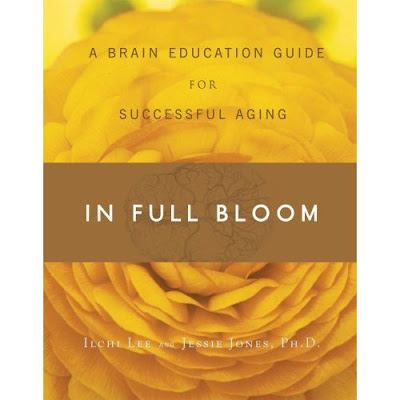Aging
Aging is a natural process as we grow older once we are past a certain age. It is a kind of accepted resignation that one's reaction time may slow with age, memories of recent events may not be as sharp (while surprisingly memories of thing long past may stay vivid in the mind), they may be physical degeneration and medical problems like high blood pressure, heart (cardiovascular) diseases, diabetes, osteoporosis, etc., may start to set in. However, not everyone may age at the same rate.The Human Brain

This photo of the brain belongs to Gaetan Lee
The human brain, a three pound slab of soft matters, is a really remarkable organ, perhaps even a miracle. Structurally, the human brain comprises of 2 parts, the left brain and the right brain. The anatomist may divide the brain into three parts: the fore-brain, mid-brain, and hind-brain. We are not scientists and is not here to describe the physical, chemical and biological nature of the brain. Suffice to say that the brain controls many parts and functions of the human body. Let us see if someone else have something to add.
The human brain and aging
The Harvard Gazette says that the aging of the brain starts around the age of 40. The aging process can be a painful process for some, others age gracefully. Some says that the secret is keeping active. There are studies that lifestyle can affect the rate of aging of the brain. Other studies showed restricting the diet also slow the aging process. Still others says "use it or lose it", that is, keep your mind active. In fact, I was told that many Japanese pensioners play mind games to help maintain mental function. More about that later.
The authors of the above book In Full Bloom: A Brain Education Guide for Successful Aging are Ilchi Lee and Jessie Jones, Ph.D. The site linked to above has useful stuff like Young Brain Quiz if you want to get an idea of how "young" you are, brain wise. There is also a free 14-page downloadable e-book. In addition, there are 4 videos of lectures conducted by Ilchi Lee. I suspect more may be on the way. If that is still not enough, there is also a "Book Club" to help guide you along the reading of the book.
According to "In Full Bloom", most people are disturbed by thoughts of old folks with foggy, confused, useless and forgetful mind plus old age conditions like dementia, Alzheimer’s disease, and Parkinson’s disease. However, you need and should not fear, for there are ways to a vigorous, creative, energetic, improving brain in an aging body. The book says your brain is infinitely adaptable and offers Brain Education System Training (BEST), training which can help you develop your innate human capacities through optimal management of your brain. BEST comprises only 5 steps:
- Brain Sensitizing
- Brain Versatilizing
- Brain Refreshing
- Brain Integrating
- Brain Mastering
"In Full Bloom" claims that while it is true that genetic heritage can affect the way our brain age, it is only fifteen to thirty percent. The rest is mainly lifestyle choices and behaviors, psychology, environment, and life events, most of which can be controlled. While you cannot choose your age, you can choose a healthy living style.
Mr. Ilchi Lee is Korean, and there is a Korean word "jangsaeng" which can translates as "longevity". However, there is a deeper meaning to the word than just longevity as that is merely a passage of time with no indication of your state of health. The Korean word "jangsaeng" also means living long with a youthful vitality which his book wants to help promote.
No comments:
Post a Comment